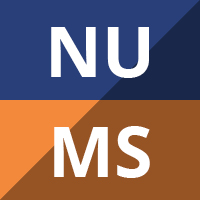
Surgery for faecal incontinence in adults
Abstract Background Faecal incontinence is a debilitating problem with significant medical, social and economic implications. Treatment options include conservative, non-operative interventions (for example pelvic floor muscle training, biofeedback, drugs) and surgical procedures. A surgical procedure may be aimed at correcting an obvious mechanical defect, or augmenting a functionally deficient but structurally intact sphincter complex. Objectives […]

Electrical stimulation with non-implanted electrodes for urinary incontinence in men
Abstract Background Electrical stimulation with non-implanted devices is used for patients with different types of urinary incontinence and symptoms of urgency, frequency and nocturia. The current review focused on electrical stimulation with non-implanted devices for the treatment of urinary incontinence in men. Objectives To determine the effectiveness of electrical stimulation with non-implanted devices for men […]

Strategies for managing sexual dysfunction induced by antidepressant medication
Abstract Background Sexual dysfunction (including altered sexual desire, orgasmic and ejaculatory dysfunction, erectile and other problems) is a relatively common side effect of antidepressant medication. These sexual side effects may compromise a person’s lifestyle and result in a lack of compliance with the prescribed antidepressant to the detriment of the person’s mental health. A wide […]

Acupuncture for stress urinary incontinence in adults
Abstract Background The use of acupuncture for stress urinary incontinence is increasing in frequency, especially in Asian area. However, its effectiveness and side effects have not been evaluated. Objectives To assess the effectiveness and side effects of acupuncture for stress urinary incontinence in adults. Search methods We searched the Cochrane Incontinence Group Specialised Register (searched […]

Urinary catheter policies for long-term bladder drainage
Abstract Background People requiring long-term bladder draining commonly experience catheter-associated urinary tract infection and other problems. Objectives To determine if certain catheter policies are better than others in terms of effectiveness, complications, quality of life and cost-effectiveness in long-term catheterised adults and children. Search methods We searched the Cochrane Incontinence Group Specialised Trials Register (searched […]

Biofeedback and/or sphincter exercises for the treatment of faecal incontinence in adults
Abstract Background Faecal incontinence is a particularly embarrassing and distressing condition with significant medical, social and economic implications. Anal sphincter exercises (pelvic floor muscle training) and biofeedback therapy have been used to treat the symptoms of people with faecal incontinence. However, standards of treatment are still lacking and the magnitude of alleged benefits has yet […]

Sildenafil citrate for erectile dysfunction in patients with multiple sclerosis
Abstract Background Erectile dysfunction (ED) is a common sexual disease in male patients with multiple sclerosis (MS). Sildenafil citrate is considered as an effective drug in the treatment of male ED in the general population, but it has not been systematically reviewed in patients with MS. Objectives To assess the efficacy and safety of sildenafil […]

Urethral injection therapy for urinary incontinence in women
Abstract Background Periurethral or transurethral injection of bulking agents is a minimally invasive surgical procedure used for the treatment of stress urinary incontinence in adult women. Objectives To assess the effects of periurethral or transurethral injection therapy on the cure or improvement of urinary incontinence in women. Search methods We searched the Cochrane Incontinence Group […]

Which anticholinergic drug for overactive bladder symptoms in adults
Abstract Background Around 16% to 45% of adults have overactive bladder symptoms, urgency with frequency or urgency urinary incontinence, or both, termed ‘overactive bladder syndrome’. Anticholinergic drugs are common treatments. Objectives To compare the effects of different anticholinergic drugs for overactive bladder symptoms. Search methods We searched the Cochrane Incontinence Group Specialised Trials Register (searched […]

Botulinum toxin injections for adults with overactive bladder syndrome
Abstract Background Overactive bladder syndrome (OAB) is a common condition with a significant negative impact on quality of life characterised by urgency with or without urge incontinence, frequency and nocturia. Intravesical botulinum toxin is being increasingly used to treat severe overactive bladder refractory to standard management. An increasing body of literature is forming that supports […]

